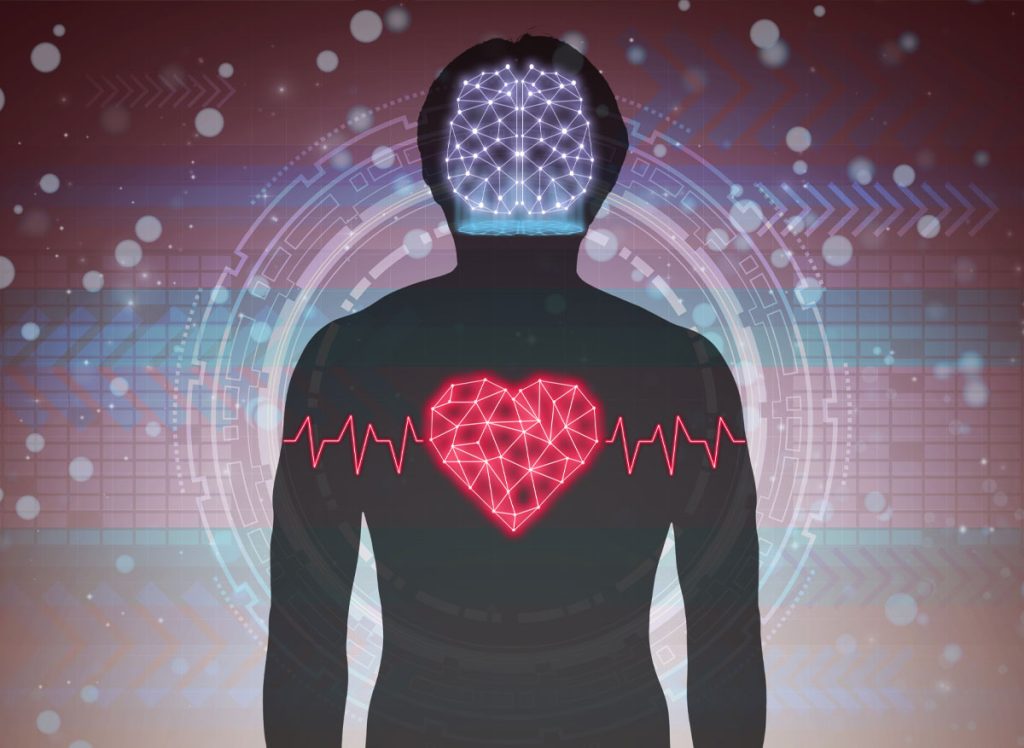The mind-body connection refers to the relationship between a person’s feelings, thoughts, behaviours, and their physical health. The mind and body are deeply interconnected and a growing body of research on the mind-body connection is showing that mental health affects physical health, and vice versa.
Mental and emotional well-being can have a direct impact on one’s physical health. Poor mental health can manifest in physical symptoms, and physical health issues can also contribute to mental health struggles.
By understanding the mind-body connection we can hope to gain greater insight into an individual’s overall well-being.
How does the mind-body connection work?
Our thoughts, feelings, and behaviours can cause physical reactions in the body. For instance, stress can trigger the release of hormones such as cortisol and adrenaline. Over time an abundance of these hormones can contribute to conditions such as high blood pressure, heart disease, and digestive issues.
On the other hand, physical health problems such as chronic illness or injury can lead to anxiety, depression, and other mental health conditions. A 2019 study from Beyond Blue found that Australians with chronic health conditions, like heart disease, were three times more likely to experience depression and two times more likely to experience anxiety compared to the general population.
The impact of stress on the body.
One of the most common ways we see the mind-body connection in action is through stress. When you’re stressed, your body enters fight or flight mode. This tends to increase heart rate and tighten muscles, which can lead to poor digestion. Prolonged stress can contribute to serious health concerns including a weakened immune system and cardiovascular disease.
According to the Australian Psychological Society’s 2021 Stress and Wellbeing Survey, 78% of Australians reported that stress had negatively impacted their physical health, with many experiencing fatigue, headaches, and muscle tension.
The link between physical activity and mental health.
One of the most effective ways to improve both mental and physical health is by being physically active. Exercise releases endorphins, commonly referred to as ‘feel good’ hormones. When endorphins are released, our moods are improved which helps to reduce symptoms of depression and anxiety. Regular physical activity can also improve sleep, boost self-esteem, and reduce stress levels.
Adults who engage in regular physical activity are up to 30% less likely to experience depression when compared to those who are inactive.
Mindfulness practises such as meditation and yoga are also popular tools that can help strengthen the mind-body connection. These tools can assist with calming the mind, reducing stress, and improving focus. A 2021 study noted a reduction in stress across participants who self-administered mindfulness interventions.
Avive Health and the mind-body connection.
We understand the importance of treating both the mind and body as part of our comprehensive care. Our therapeutic programs incorporate physical health elements with our hospitals featuring dedicated fitness studios.
Our embodied emotion and movement program has been designed by leading psychiatrists, psychologists, and exercise physiologists in line with the mind-body connection.
If you’re struggling with your mental health and noticing the impact on your physical health – or vice versa – our team is here to help. Addressing both aspects of health can lead to better outcomes and a higher quality of life.
The mind-body connection is more than just a concept. It’s a powerful insight into how our mental and physical health are linked. By understanding this connection, you are able to take steps to improve your overall well-being, and make informed choices to seek comprehensive care that addresses all aspects of your health.

